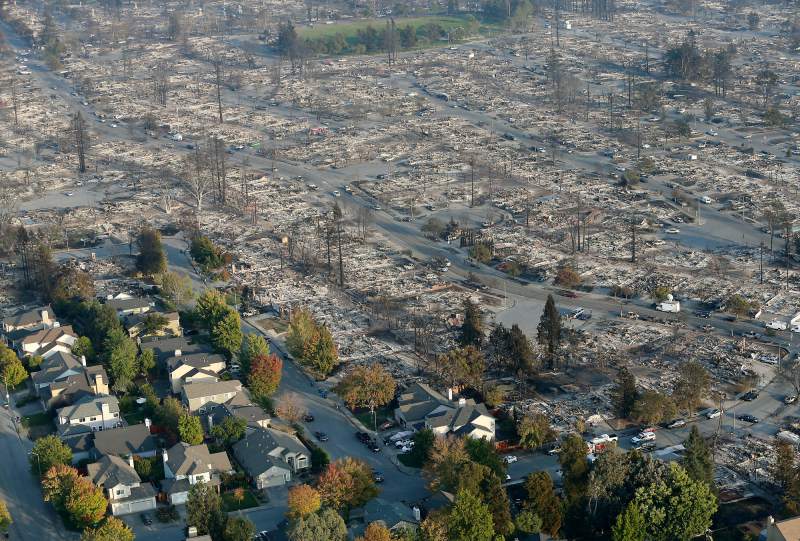I have been doing some research and have compiled this list with helpful information. I did not write this, I have just compiled the information. I hope this is helpful in some way as we all recover from this devastation. Stay safe and hug your loved ones tight. ~Sue
1 Contact your insurance agent immediately
You’ll need to start a claim and address your immediate needs. ‘Loss of use’ funds from your insurance policy will cover living and other daily expenses. If you receive these funds or an advance on your claim, save all receipts and keep a detailed record of all purchases. Your insurance agent should also be able to help you secure your property and offer recommendations for cleaning up or restoring salvageable items.
If you are a tenant, contact the owner/landlord and/or their insurance company. If you have renter’s insurance, contact your insurance company.
Dealing with the insurance company is a very convoluted process involving countless calls, emails, letters, and documents. Be sure to keep track of all communication and keep a copy of all documents and post office receipts of mailing. Take notes, including the date and time, of every phone conversation and face to face meeting. Getting a binder or file organizer is a great idea. This will allow you to section off the different types of correspondence — organizing phone call notes, emails, invoices, bills, permits, contracts for repairs, and insurance forms each into their own separate section.
2 Cancel Utilities
Call to cancel cable, PG&E, trash & water services. Go to the post office and request your mail be forwarded to a safe address or get a PO Box.
3 Keep track of your living expenses
If your home is completely destroyed and unlivable, your homeowner’s policy has a ‘loss of use or additional living expense’ policy which allows you to maintain your standard of living while dealing with this loss.
Note, however, that you are only entitled to the difference between what it costs you while displaced and what it was costing you in your home. For example, if your monthly living expenses are $4,000 per month, but now you are having to add hotel stays, restaurant meals, laundry expenses, and extra gas for your car, totaling an additional $1,000, your insurance company will only reimburse you the extra $1,000 per month. This policy will also cover laundry service, meals, etc. The key to getting the most out of this policy though is to keep detailed records and receipts of your expenditures.
Many people decide to stay with family members or friends instead of at a hotel. Sometimes, the insurance company will reimburse your hosts for the additional costs of your stay. Ask your host to itemize the additional costs. Take extra care to be reasonable and not frivolous, and be patient with your insurance company should they want to negotiate with you for this cost. Politely remind the company that you are saving the company a great amount of money in hotel and restaurant expenses by staying with loved ones.
4 Personal property replacement
Make a list of your personal belongings, as best you can remember. Personal property coverage is what will help you pay for a new couch, kitchen appliances, and shoes. So how does personal property coverage work? It’s usually a percentage of your dwelling amount. If your home is valued at $300,000 and you have 50% personal property coverage you’ll get $150,000 to replace everything. Your policy may also be broken out into replacement cost or cash value. Replacement cost means if you bought your couch for $1,000 10 years ago you’ll still get $1,000 to replace it today. Cash value means you’ll only get 100 bucks because that’s all your 10 year old couch is worth today.
5 Keep paying your mortgage
You’ll still need to make mortgage payments — even if your home is destroyed. Your insurance policy, which should cover your home’s value and mortgage, will make payments to you and your mortgage lender.
Let’s say you have a home valued at $300,000 with a mortgage of $150,000. This is covered under your dwelling coverage policy. When you first purchased homeowner’s insurance your home was valued at a certain amount, this amount is the replacement value of your home. There are a couple of caveats to this policy, but what’s important to know is that the bank gets paid first. What’s left goes to you. This is what you use to rebuild your home or to buy something new. Some policies even include covering closing costs or an allowance for a monthly stipend to cover an increase in interest rate.
You’ll also need to continue any car payments and replace any credit or debit cards that may have been destroyed in the house fire.
You may wish to put your mortgage and other payments on auto-pay for the time being. This is one less stress to think about as you move through the process.
6 Keep paying your insurance premiums/ask for reduction in coverage
Many people make the error of discontinuing their insurance premiums once they’ve filed fire insurance claims. This is a huge mistake.
Remember to give your insurance agent the new address of where you’re staying and have that added to your liability coverage. To reduce your premiums, you can also ask that the section of the policy that covers the structure of your home be cut back, in the case that your home was a total loss. Just be sure to adjust this after your new home is built.
7 Seek counseling if needed and reassure children
Having your house damaged or destroyed by fire is extremely traumatic and can have lasting impacts on each family member, depending on his or her ability to cope. Common feelings are helplessness, disorientation, pining for belongings, deep sadness, a sense of deprivation, despair and a loss of routine and structure. The depth of feelings and disorientation will depend on the extent of damage – loss of the entire house can leave everyone feeling as if they have to rebuild life all over again; partial loss, however, still carried stress and sadness. Reassure each other and let the emotions happen. Keep a close eye on children and be truthful with them about what has happened and if you do not know what is going to happen next, at least reassure them that you have one another, that things can all be replaced and that the only way is up from here on.
This information was compiled from the following sites. I make no claim to the accuracy of the information provided.
http://realestate.findlaw.com/owning-a-home/top-ten-tips-for-filing-fire-insurance-claims.html
https://blog.equifax.com/credit/six-things-you-need-to-do-after-a-house-fire/
http://petetheplanner.com/financially-what-happens-when-your-house-burns-down/
https://www.wikihow.com/Know-What-to-Do-Following-a-House-Fire
https://www.statefarm.com/simple-insights/residence/what-to-do-after-a-house-fire


Recent Comments